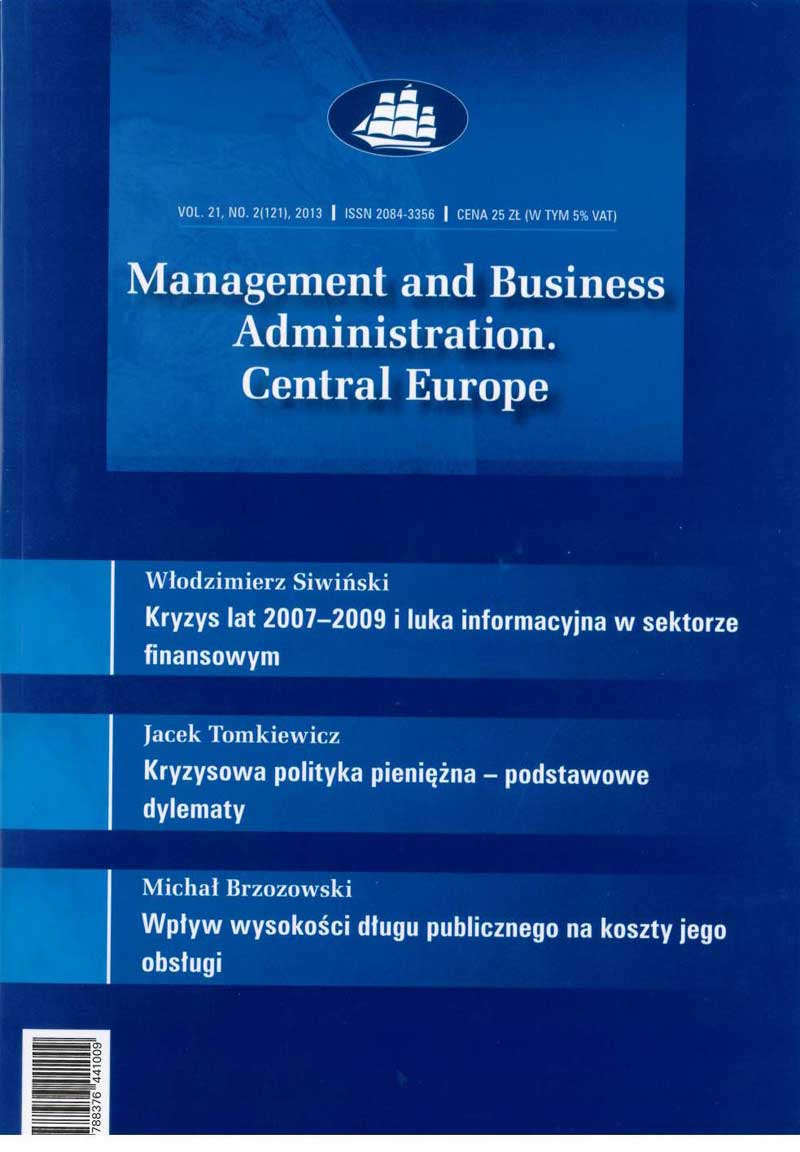Institutions and Modernity
Institutions and Modernity
Author(s): Witold MorawskiSubject(s): Economy
Published by: Akademia Leona Koźmińskiego
Keywords: modernity; institution; institutional morphogenesis; bounded rationality; complex interdependence
Summary/Abstract: Purpose: Modernity consists of many confl icting aspects: It brings many empty promises, yet has resulted in new institutions that create bridges between the values and interests of millions of people who seek freedom, prosperity, quality of life, strengthened democracy and social justice. In this paper I attempt to a gain and loss account against modernity, because institutional rules are not only conducive to cooperative interactions, but to hostile interactions as well. People are not always guided by moral commitment, but rather more often driven by cold calculation or coercion. Methodology: Modernity has at least three defi nitions. The fi rst defi nition is based on ideas that took over the imagination of the era. The second defi nition is based on an analysis of the behavior of people who respond to reason as well as emotion and believe that they act more rationally than their ancestors or the traditional “others”. The third defi nition is the one closest to my heart, consisting of the use of institutional categories. Institutions offer practical ways of connecting ideas and people. The challenge for them is the result of deepening local and national interdependencies, but increasingly often also regional (e.g. European) and global. Interdependencies are the result of the scientifi c and technological revolution, global markets, global governance mechanisms, the emergence of new social forces and cultural confl icts (against the background of reconciling identity and differences). Conclusions: The most important task is to identify the mechanisms of complex systems so that people know how to act under conditions of uncertainty, risk and crisis. Hence, the expectations toward institutions often exceed their abilities. Even though new institutions are being created and old ones are being fixed, we are witnessing and participating in, institutional paralysis and the decay (e.g. corruption). In this situation, it is imperative not only to improve control methods (e.g. legal), but also to resort to normative systems (values and identity) and knowledge (competence and skills). The source of this paralysis is often man himself, convinced of his own maturity and equipped with all sorts of rights, but manipulated on a scale not yet seen in the past. We are experiencing our own struggle as to what roles are closest to us, e.g. consumer, investor, or citizen?Research Implications: Modernity is an emblematic, but confusing term. Therefore, the most important task is to identify the activities of complex systems, so that people know how to act under conditions of uncertainty, risk and crisis. People – agencies must operate in structures that defi ne the boundaries of their actions. The main task of social sciences is to identify the conditions for the construction of successful confi gurations of agencies and structures.
Journal: Management and Business Administration. Central Europe
- Issue Year: 122/2013
- Issue No: 3
- Page Range: 30-49
- Page Count: 19
- Language: English

